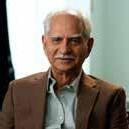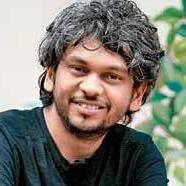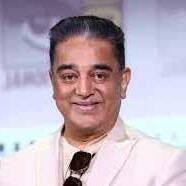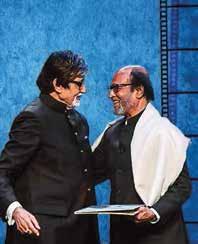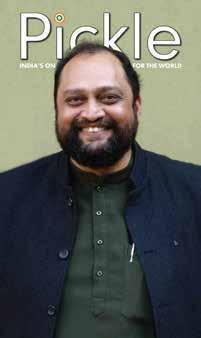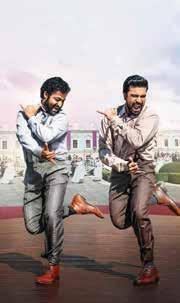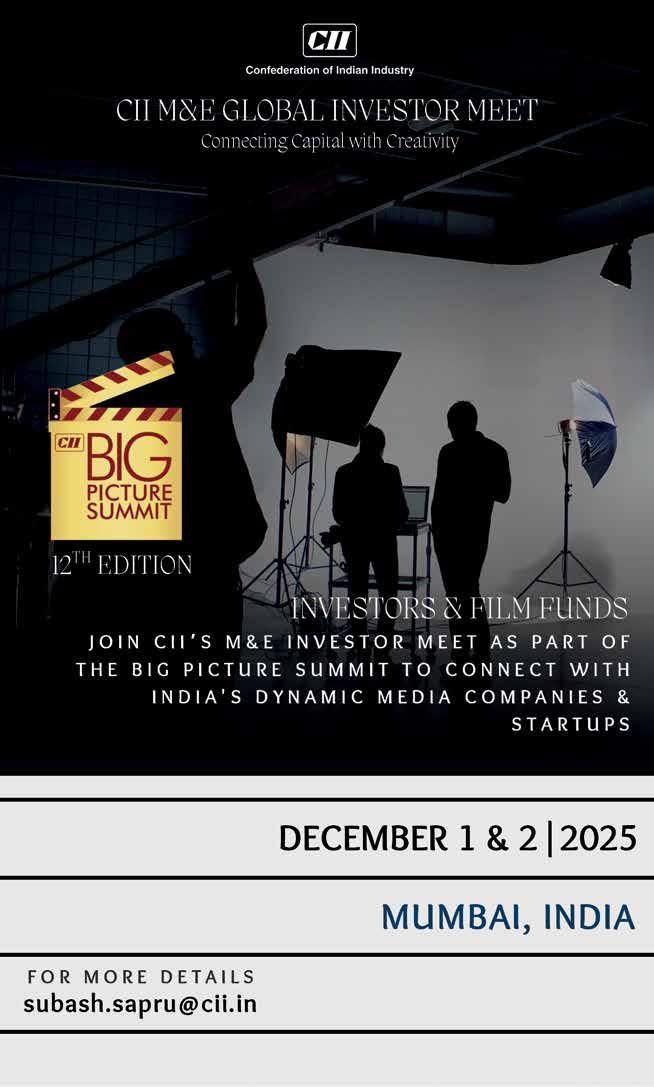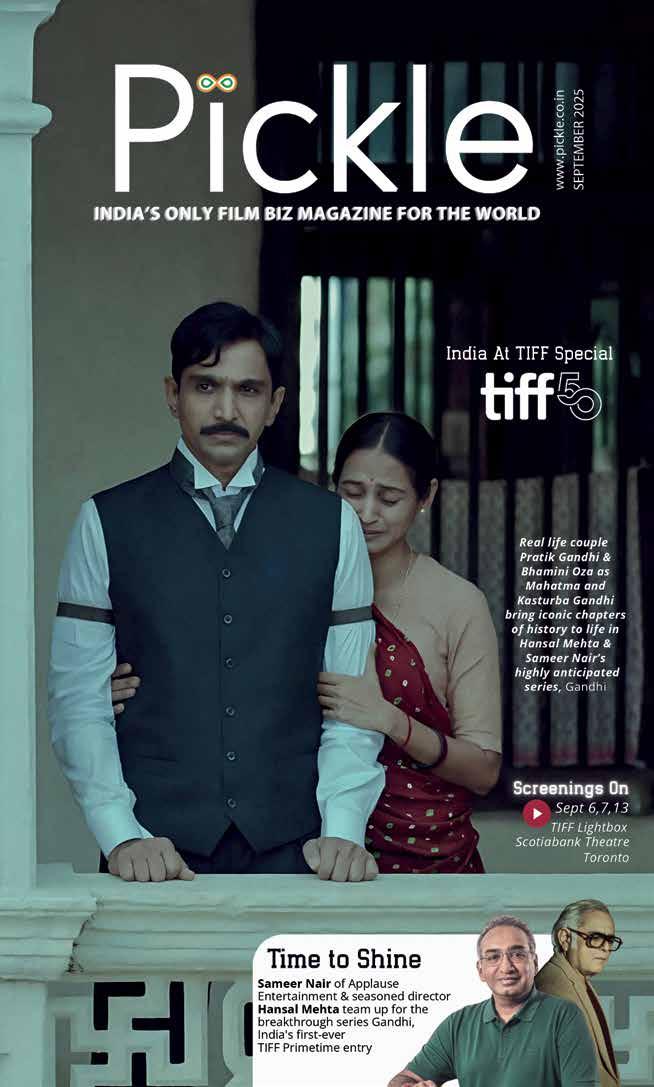
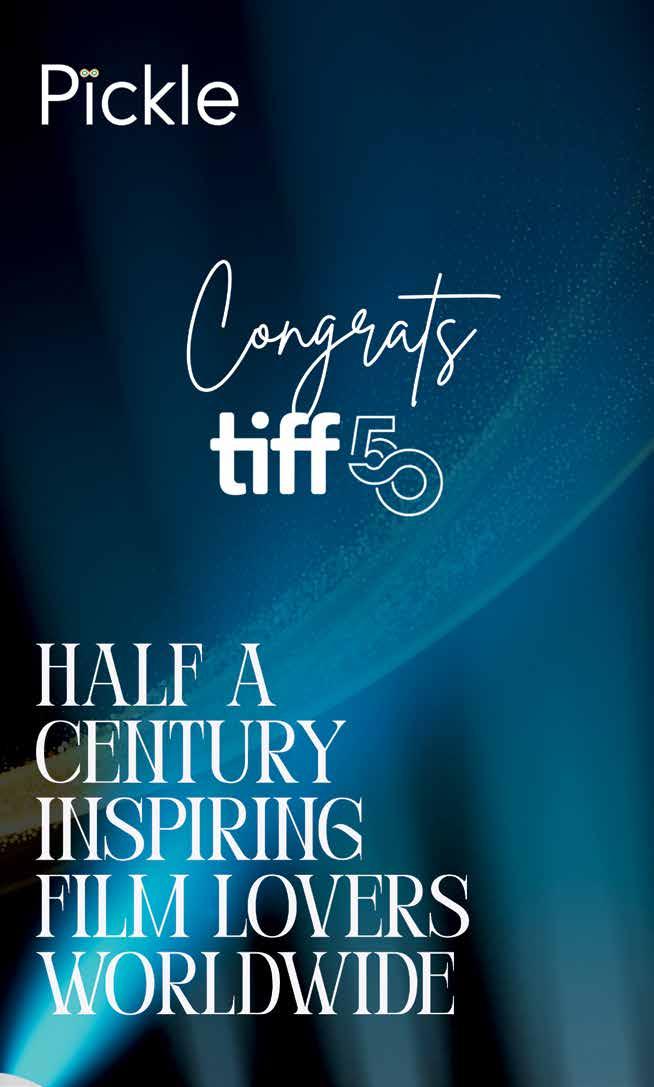





As we celebrate the landmark 50th edition of the Toronto International Film Festival (TIFF), it is an opportune moment to reflect on the remarkable and evolving relationship between India and this globally prestigious cinematic platform. TIFF has established itself as one of North America’s foremost film festivals, providing an extraordinary stage for world cinema and serving as a vital gateway for Indian and South Asian storytellers to engage with audiences worldwide.
In the past five decades, TIFF has presented more than 150 Indian films, capturing the rich diversity, creativity, and depth of Indian cinema. This longstanding collaboration has significantly elevated the global profile of Indian filmmakers, helping them achieve international recognition and acclaim. The festival’s vibrant audience, which includes over 600,000 people of Indian origin, underscores the enduring enthusiasm for Indian stories, as well as the powerful impact of cultural representation on the global stage.
The momentum continues at the 2025 festival, which features an exciting and diverse selection of Indian works. Noteworthy premieres include Neeraj Ghaywan’s Homebound, Anurag Kashyap’s Monkey in a Cage, Bikas Mishra’s Bayaan, and the debut feature In Search of the Sky by Jitank Singh Gurjar. Adding to the festival’s innovative spirit, the highly anticipated web series
Gandhi, created by Sameer Nair and Hansal Mehta, will be showcased in TIFF Primetime.
A special highlight is the 50th anniversary restoration of Ramesh Sippy’s iconic classic Sholay, which exemplifies TIFF’s commitment to celebrating both contemporary storytelling and timeless masterpieces that continue to shape generations of filmmakers and audiences alike.
In this edition, we also present an in-depth interview with Sameer Nair, CEO of Applause Entertainment, who offers valuable insights into the creative vision and collaborative spirit driving the new wave of Indian content on the world stage. His perspective highlights how Indian storytelling is breaking new ground, forging meaningful global connections, and inspiring fresh conversations across borders.
Cameron Bailey, TIFF’s CEO and former Artistic Director, has played a pivotal role in shaping India’s presence at the festival. His two decades of dedicated scouting and championing of Indian talent have brought over 100 Indian films to international prominence, solidifying TIFF as a premier destination for Indian

This milestone edition of TIFF is a testament to the dynamic synergy between Indian cinema and the festival, charting a forward-looking path of innovation, cultural exchange, and artistic excellence for years to come.
If you have any questions, or are interested in collaboration opportunities, don’t hesitate to get in touch.
n vidyasagar
pickle media
nat@pickle.co.in, www.pickle.co.in
Pickle Volume XVIII 3rd Edition
Published by Pickle Media Private Limited
Email: natvid@gmail.com l Mumbai l Chennai No.2, Habib Complex Dr Durgabhai Deshmukh Road RA Puram CHENNAI 600 028
For advertising: natvid@gmail.com / pickle@pickle.co.in
Pickle Business Guide 2025 Copyright 2025 by Pickle Media Pvt Ltd. All Rights Reserved.
Senior Editor : Vivek Ratnakar
Editorial Coordinators : Maitreyi Vidyasagar, Shruti Sundaranand
Design: Jose J Reegan, James, D Sharma, S Lakshmanan
Photo Editor : K K Laskar
Admin & Operations : B Rajalakshmi
Email: natvid@gmail.com
Pickle is an ad supported business guide tracking the filmed entertainment business in India.
Where deals are done, partnerships are born, and stories find their stage.

13th-16th October
Palais des Festivals, Cannes.
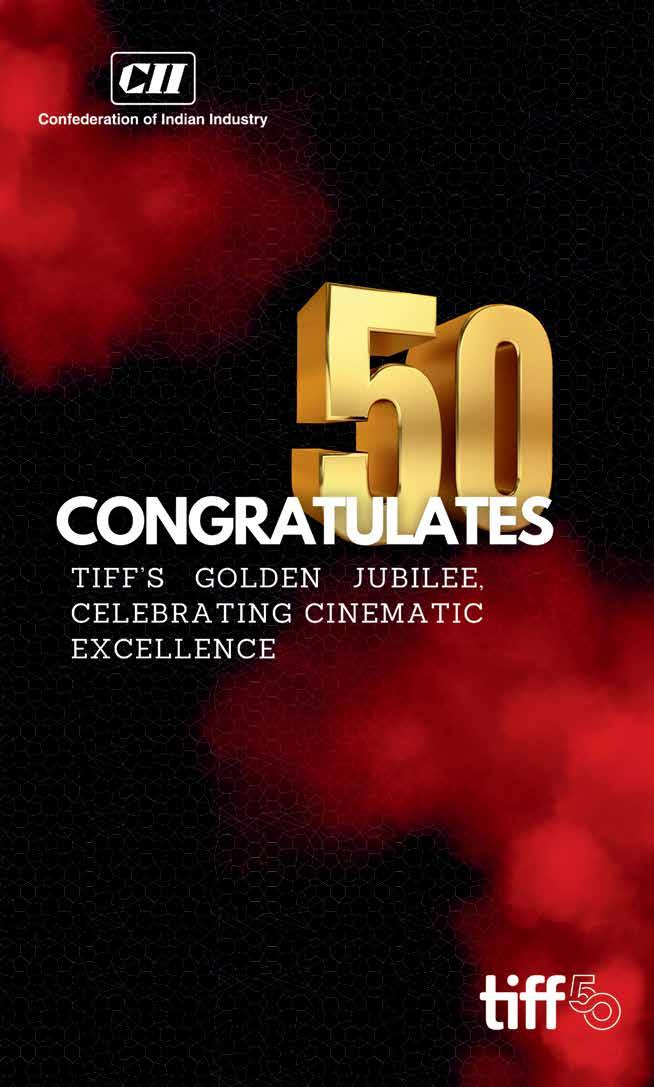


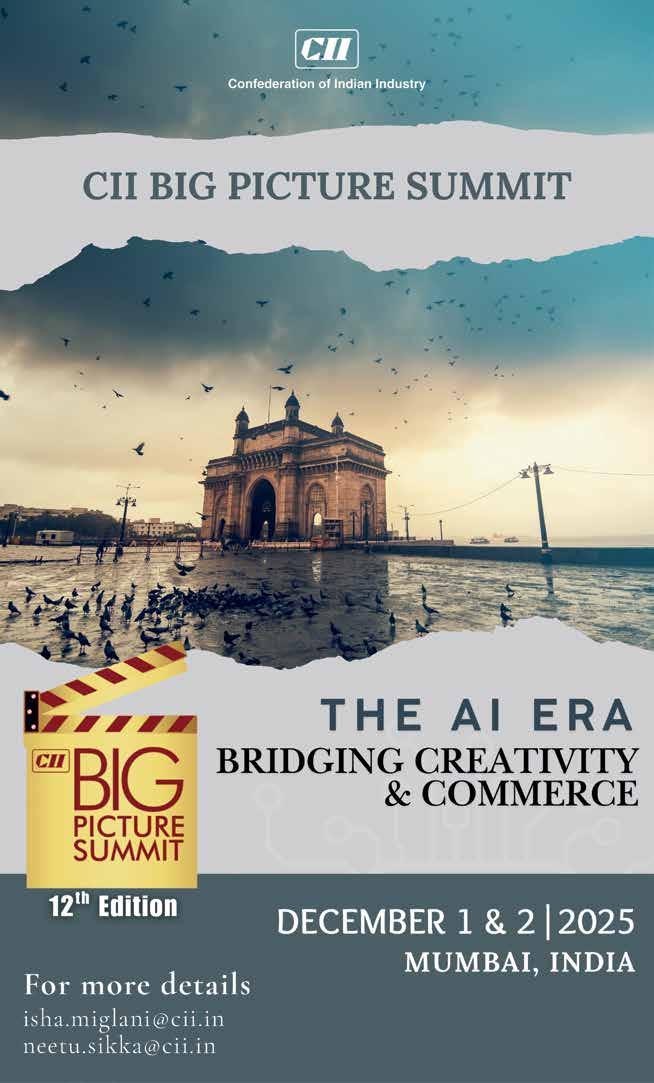
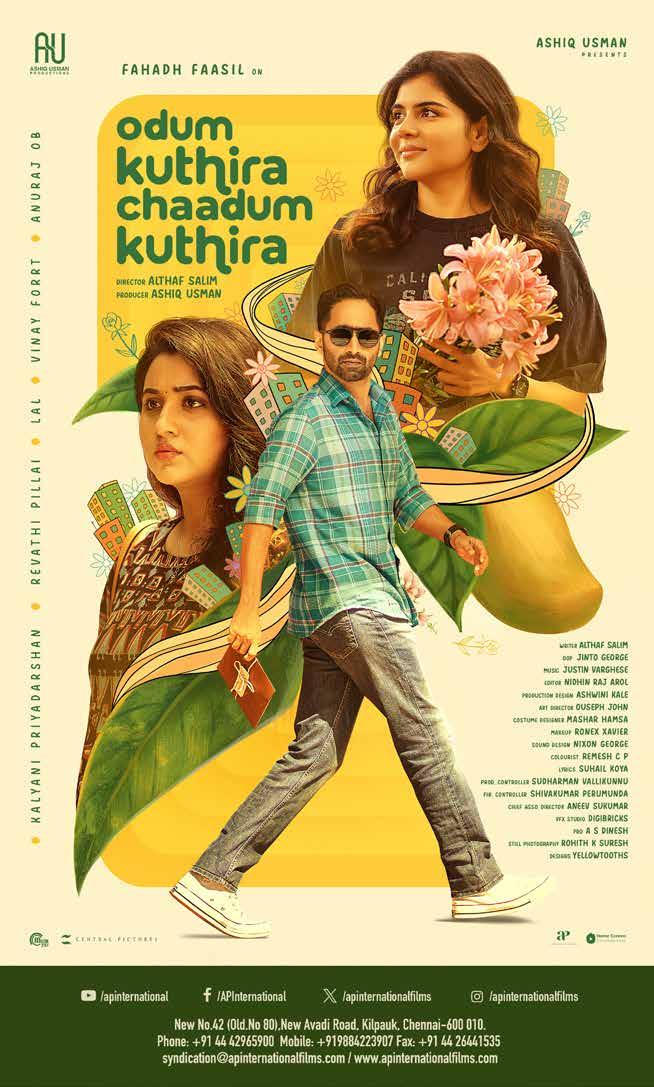

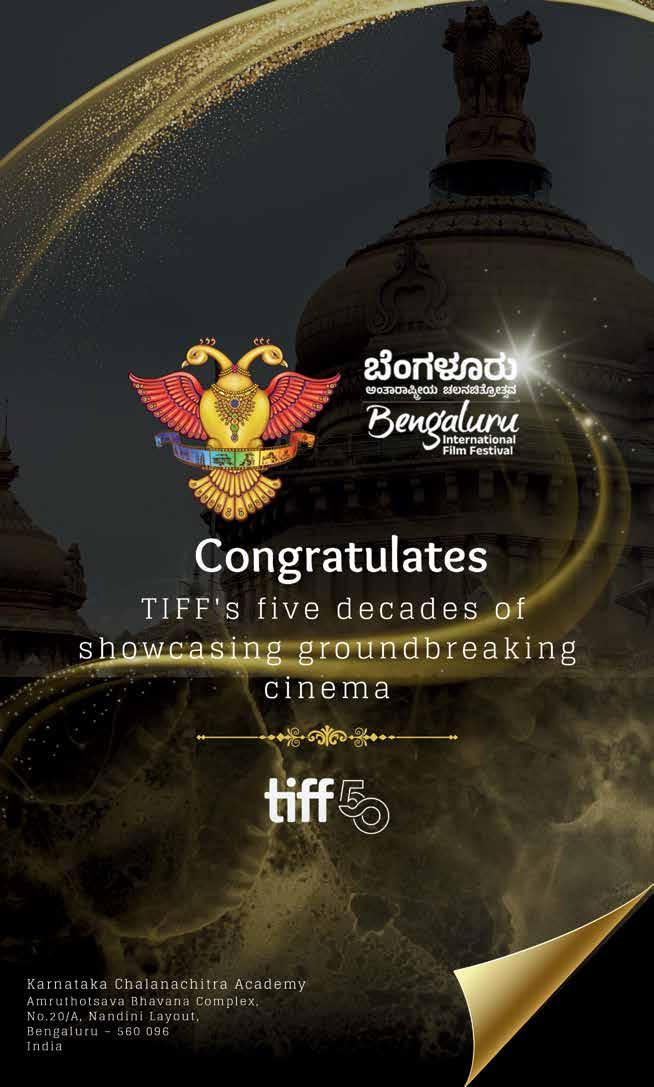

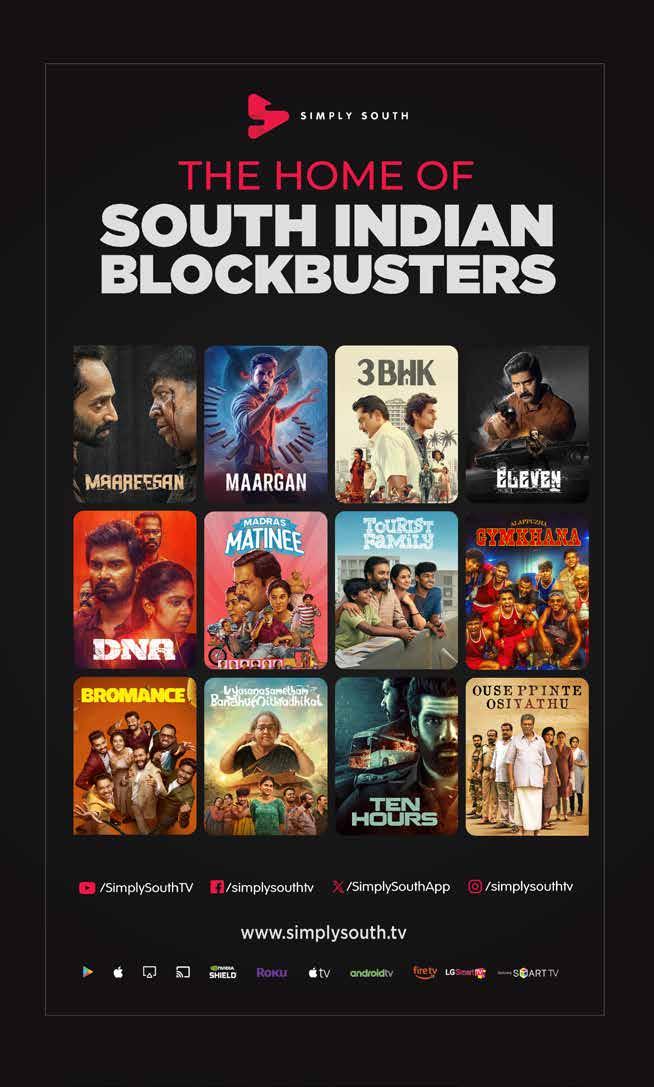

As TIFF celebrates 50 years of cinematic storytelling, it honours its past, spotlights global voices, and sets the stage for the next era of film innovation

AS THE FESTIVAL’S 50TH ANNIVERSARY UNFOLDS, AUDIENCES CAN LOOK FORWARD TO A DIVERSE SLATE OF WORLD PREMIERES, CANADIAN TALENT, AND UNFORGETTABLE EXPERIENCES THAT CONTINUE TO SHAPE THE FUTURE OF FILM
This year marks a significant milestone for the Toronto International Film Festival (TIFF) as it celebrates its 50th edition, reinforcing its legacy as a premier gathering for screen storytellers from around the world.
Since its establishment in the mid-1970s, TIFF has undergone transformations that its founders could never have envisioned, evolving into a unique intersection of cultures, creativity, and cinematic innovation. In reflecting on TIFF’s journey, CEO Cameron Bailey emphasises the festival’s enduring spirit of creativity and innovation.
“Toronto is a unique gathering place in the world. For thousands of years, from First Nations fishers to the latest global migrants, Toronto has welcomed a vast array of people and evolved with the ideas, ambitions, and stories they bring,” Bailey says.
He emphasises that this year’s festival offers “the best of every kind of film imaginable, designed to open your eyes, your mind, and your heart.”
As TIFF commemorates this significant edition, it remains committed to pushing boundaries by showcasing films from over 75 countries and introducing new initiatives, including the International People’s Choice Award.
Chief Programming Officer Anita Lee expresses gratitude for the festival’s vibrant community of filmmakers, fans, and programmers.
“We create collective experiences that delight us, challenge us, and hopefully unite us in our common humanity,” says Lee.
She also looks to the future with excitement for the launch of TIFF: The Market next year, a new initiative designed to connect global creative leaders and foster the birth of groundbreaking cinema.
With its rich history guiding the way and innovative projects on the horizon, TIFF remains committed to championing global cinema and building new pillars for the next halfcentury.

Here are the winners of the annual TIFF Tribute Awards honoring outstanding cinema contributions. Idris Elba receives the Impact Media Award; Oscar-winning artist Kazu Hiro, the Variety Artisan Award. Acclaimed actors Nina Hoss and Channing Tatum get Performer Awards. Iranian auteur Jafar Panahi and Inuk filmmaker Zacharias Kunuk receive Special Tribute Awards. Canadian icon Catherine O’Hara earns the Norman Jewison Career Achievement Award. They join previously announced honorees Guillermo del Toro, Jodie Foster, HIKARI, and Lee Byung Hun in being celebrated for their remarkable achievements in film.
The TIFF Industry Conference 2025 includes six pillars: Visionaries, Dialogues, Perspectives, Microsessions, Spotlight, and — new this year — Buyers in Focus, a series of panel conversations with global acquisition executives. TIFF Talent Development programming also returns with impactful labs, fellowships, and funds that support emerging creators and their projects.
Buyers in Focus emerges as a new pillar of the TIFF Industry Conference, offering attendees more access to decision-makers, and laying the groundwork for TIFF: The Market in 2026. This series of conversations offers an inside look at the evolving strategies, challenges, and opportunities shaping today’s film marketplace and distribution landscape.
Toronto is a unique gathering place in the world. For thousands of years, from First Nations fishers to the latest global migrants, Toronto has welcomed a vast array of people and evolved with the ideas, ambitions, and stories they bring

Anita Lee Chief Programming Officer, TIFF
Charles Tremblay has been appointed Head of Market for TIFF: The Market, launching September 2026. With over 20 years in film distribution, he co-founded Metropole Films Distribution, launched MK2 | MILE-END (later Sphere Films), and recently oversaw successful Canadian releases at MUBI including The Substance and Parasite.
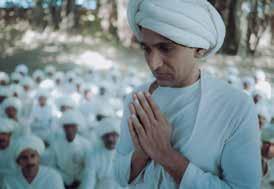
Gandhi chronicles young Mohandas Gandhi (Pratik Gandhi) as he leaves India for London to study law, supported by his wife Kasturba and family. In Victorian Britain, he befriends vegetarian activist Josiah Oldfield (Tom Felton) and deepens his ethical convictions. Inspired by global ideas and colonial injustices, he embarks on a journey of self-discovery that foreshadows his future as a transformative leader.
Director: Hansal Mehta, Sameer Nair
Country: India | 2025 | 145m
Language: Hindi, English, Gujarati
Cast: Pratik Gandhi, Bhamini Oza Gandhi, Tom Felton, Kabir Bedi, Aseem Hattangady
International Sales Agent: Lenore Entertainment Group
Homebound follows Chandan (Vishal Jethwa), a Dalit, and Shoaib (Ishaan Khatter), a Muslim, who compete among 2.5 million applicants for 3,500 police jobs, seeking dignity through uniform. When exam results are delayed, economic pressures mount—Shoaib’s disabled father can’t work, while Chandan wants to build his parents a house. Religious and caste-based bigotry threatens their hopes and friendship in this Bollywood social drama featuring strong performances and atmospheric cinematography.
Director: Neeraj Ghaywan
Country: India | 2025 | 117m
Language: Hindi
Cast: Ishaan Khatter, Vishal Jethwa, Janhvi Kapoor
International Sales Agent: Paradise City Sales
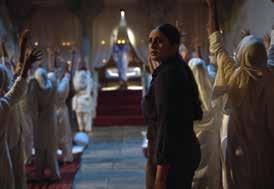
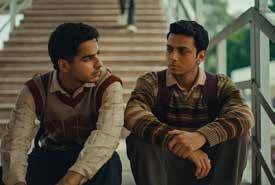
HOMEBOUND
Bayaan follows Officer Roohi (Huma Qureshi), a young Delhi detective investigating sexual abuse allegations against a powerful Rajasthan cult leader (Chandrachur Singh). Her duty collides with brutal power dynamics as corrupt colleagues, her own high-ranking police father, and the cult leader’s influence work to bury the case. Struggling to find witnesses willing to speak, Roohi transforms from hesitant rookie to reluctant crusader in this devastating study of systemic complicity and silence.
Director: Bikas Ranjan Mishra
Country: India | 2025 | 118m
Language: Hindi
Cast: Huma Qureshi, Chandrachur Singh, Sachin Khedekar, Swati Das, Vibhore Mayank
Bandar follows aging TV star Samar (Deol) whose celebrity is fading. While in a relationship with younger Khushi (Azad), his ex Gayatri (Pabbi) wants back in his life. When Samar ghosts her, Gayatri accuses him of rape, leading to his arrest. Facing a corrupt judicial system, this suspenseful drama explores #MeToo complexities, examining predation, victimhood, and a flawed man confronting changing attitudes about gender and power in contemporary society.
Director: Anurag Kashyap
Country: India | 2025 | 140m
Language: Hindi, Marathi, English
Cast: Bobby Deol, Sanya Malhotra, Sapna Pabbi, Indrajith Sukumaran, Saba Azad

IN SEARCH OF THE SKY
WORLD PREMIERE CENTREPIECE

In Search of Sky follows an elderly couple barely surviving on kiln brick hauling and cow-dung cake sales while caring for their mentally challenged son, Naran. Facing land-grab pressures and community whispers urging them to abandon Naran, they gamble on a pilgrimage to the Maha Kumbh Mela for hope. This poignant feature explores poverty’s burden, familial love, and faith’s enduring resilience.
Director: Jitank Singh Gurjar
Country: India | 2025 | 87m
Language: Hindi
Cast: Nikhil Yadav, Meghna Agarwal, Raghvendra Bhadoriya
Director: Ramesh Sippy
Country: India | 1975 | 204m
Language: Hindi
Cast: Sanjeev Kumar, Dharmendra, Hema Malini, Amitabh Bachchan, Jaya Bhaduri
Sholay follows two ex-convicts, Veeru (Dharmendra) and Jai (Amitabh Bachchan), hired by principled Thakur (Sanjeev Kumar) to defeat the ruthless dacoit Gabbar Singh (Amjad Khan). Blending Western and Bollywood styles, they forge bonds, face epic battles, and deliver memorable songs and fights. This 1975 classic balances highoctane action, humor, and themes of loyalty, justice, and redemption. TIFF
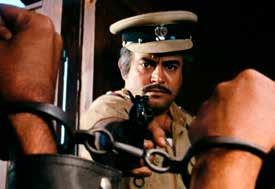
India’s booming M&E sector, skilled talent, and government incentives make it a compelling choice for global content creators seeking world-class innovation and collaboration.
Prime Minister Modi’s vision champions India as a global content creation leader, combining rich cultural heritage with cutting-edge technology to produce worldclass media for international audiences.
India’s Media & Entertainment sector is growing at a 10–12% CAGR, expected to reach $70 billion by 2030, fueled by digital innovation, expanding broadband, and increasing consumer spending.
Many Indian states are rolling out progressive AVGC policies and building infrastructure, creating regional hubs and attracting both domestic and international investment in media and entertainment.
The India Cine Hub streamlines permissions and offers incentives for foreign productions, positioning India as a preferred destination for international filmmaking and large-scale content projects.
New institutions are bridging skills gaps in Animation, VFX, Gaming, and Comics (AVGC), providing advanced training and research to ensure India remains a top global talent supplier.
India’s diverse cultures, languages, and government incentives create a vibrant ecosystem for AVGC, making it an attractive location for creative projects and partnerships.
India’s startup ecosystem in Media & Entertainment is thriving, driven by digital transformation, government support, and rapid growth in gaming, content creation, and tech innovation.
International streaming platforms are leveraging India’s co-production treaties and localizing content, opening new avenues for global collaborations and broader reach.
India offers competitive production costs, highly skilled creative and technical professionals, and access to advanced technology, making it ideal for international content development.
Widespread internet and smartphone adoption are driving a surge in digital content consumption, creating vast opportunities for new media and entertainment ventures.
India’s streaming platform, JioHotstar, has rapidly become the world’s second-largest streaming service, driven entirely by its domestic market. In just three months, the JioHotstar attracted over 600 million users— including 75 million on connected TVs—and now counts 300 million paying subscribers. It offers more than 320,000 hours of content—six times the combined library of its two nearest rivals—and adds 30,000 hours annually.
At the recent Reliance Industries’ AGM, Akash M. Ambani underscored JioHotstar’s 34 percent share of India’s television market, matching the combined share of the next three networks. Leveraging advanced AI, proprietary software, and technology innovations, the service delivers a seamless experience across mobile devices, smart TVs, and connected screens, with an ambition to reach a billion screens.
Describing its launch as a defining moment for India’s media landscape, Akash Ambani highlighted how JioHotstar’s strategic integration of content, AI, and technology is reshaping storytelling, distribution, and audience engagement. With plans for continued platform and geographic expansion, JioHotstar exemplifies the immense growth potential of India’s digital entertainment market.
From talent discovery to billion-dollar deals, WAVES 2025 proved India is
no
longer just participating in global media—it’s shaping its
future.
WAVES 2025—the World Audio Visual and Entertainment Summit—emerged as a transformative convergence for the global media, entertainment, and creator economies. Envisioned by the Hon’ble Prime Minister of India, Shri Narendra Modi, WAVES 2025 not only underscored India’s rising stature as a cultural and creative powerhouse but also set a new benchmark for global collaboration, talent discovery, and innovation in the digital era.
WAVES 2025 solidified the centrality of the “Orange Economy”—anchored in content, creativity, and culture—in India’s growth narrative. The Prime Minister’s articulation of the Orange Economy as India’s dawn resonated throughout the summit, with the event serving as a dynamic stage for creative exchange, cultural diplomacy, and the strategic positioning of India as a preferred global media and entertainment investment destination. By gathering 20,000+ delegates from over 100 countries, WAVES 2025 fostered a collaborative environment for storytelling, technological innovation, and commercial partnerships.
The summit’s diverse programming, including the Bharat Pavilion, WAVES Bazaar, Creatosphere, and WaveX, showcased India’s multifaceted creative landscape—from ancient oral traditions to cutting-edge digital storytelling. The Bharat Pavilion, with its thematic zones, celebrated India’s regional diversity, while the WAVES Bazaar became a year-long global marketplace, facilitating over 3,000 B2B meetings and INR 1,328 Crore in business, and deepening India’s ties with major international players like Netflix, Amazon MGM Studios, and Warner Bros. Discovery.
The launch of notable collaborations, including Indo-European and UK-India coproduction deals, as well as the inauguration of India’s first Film Festival in New Zealand, underscored India’s emergence as a springboard for cross-border creative ventures. These developments signal the country’s growing influence in shaping global content trends and catalyzing international investments.
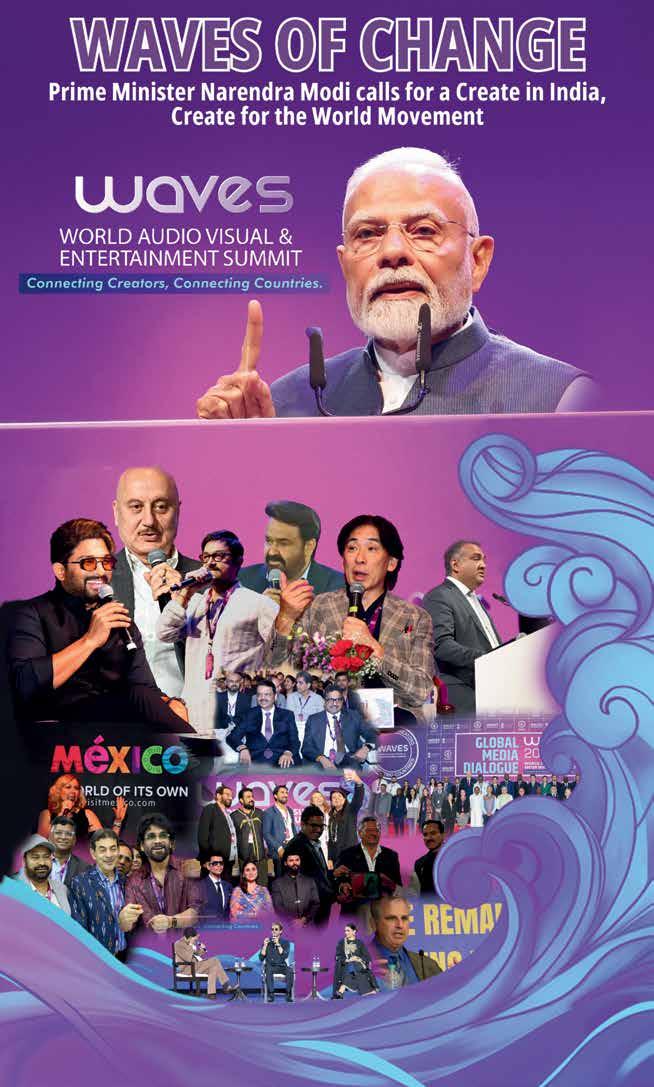
WAVES 2025 placed a strong emphasis on talent discovery and creator empowerment. The “Create in India Challenge” attracted over 100,000 registrations from 60+ countries, culminating in 34 competitive challenges across animation, gaming, music, and more. Creatosphere and masterclasses provided a nurturing ground for young talent, promoting innovation and digital skills necessary for the future of media and entertainment. These initiatives not only celebrated the creative spirit but also promoted inclusion and diversity, giving a platform to untold stories and emerging voices.
4
A key differentiator for WAVES 2025 was its focus on technological advancement and the creator economy’s monetization. The summit facilitated MoUs worth over INR 8,000 Cr., including landmark investments in creative infrastructure, such as the development of a Film City, new academic campuses, and media technology hubs. The launch of the Nifty WAVES Index and MoUs between the Indian Institute of Creative Technology and global technology giants (Google, Apple, Microsoft, Meta, etc.) signaled a strategic focus on research, talent skilling, and industry-academia linkages.
WaveX, the summit’s innovation platform, connected 127 startups with leading investors, validating India’s potential to nurture world-class creative tech ventures. The summit’s focus on immersive technologies, VFX, AI, and gaming further positioned India at the forefront of global media innovation.
5
WAVES 2025 distinctly advanced the agenda of inclusivity and sustainability in the media and entertainment sector. The recognition of 12 community radio stations for excellence, focus on regional voices, and adoption of the WAVES Declaration at the Global Media Dialogue reflected a
WAVES 2025 solidified the centrality of the “Orange Economy”—anchored in content, creativity, and culture—in India’s growth narrative
commitment to ethical media, bridging the digital divide, and championing diverse narratives. The Declaration’s emphasis on cultural heritage, equitable access, humancentric outcomes, and responsible use of AI is particularly significant in today’s rapidly evolving digital landscape.
Through initiatives like the “Waves of India” album and the WAVES Sankalp pledge, the summit celebrated India’s unity in diversity and reinforced shared values of creativity, responsibility, and cultural stewardship.
6
The summit’s success is also measured by the strategic partnerships it forged, the actionable insights it generated, and the momentum it created for the Indian creative economy. Reports launched during WAVES, such as ‘Mapping India’s Creator Economy’ and ‘Press Play – India’s OTT Story Goes Global,’ provided valuable knowledge resources for policymakers and industry leaders.
The summit’s high-level dialogues, including the PM-CEO Roundtable and plenary sessions, fostered meaningful exchanges between government, industry, and creators, promoting India’s vision of becoming a global content creation and export hub.
WAVES 2025 has set a new global standard for media and entertainment summits. By blending visionary leadership, robust international participation, and a strong focus on innovation and inclusivity, the summit has amplified India’s voice in the global creative arena. Its legacy lies in the vibrant networks, transformative collaborations, and empowered creators it has nurtured—heralding a new era for India’s Orange Economy and its role in shaping the world’s creative future.
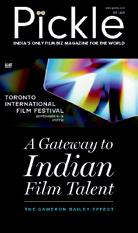




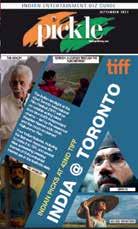
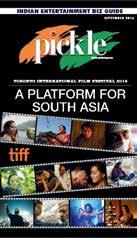

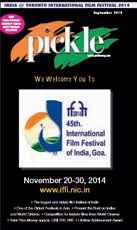
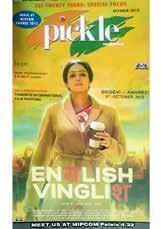

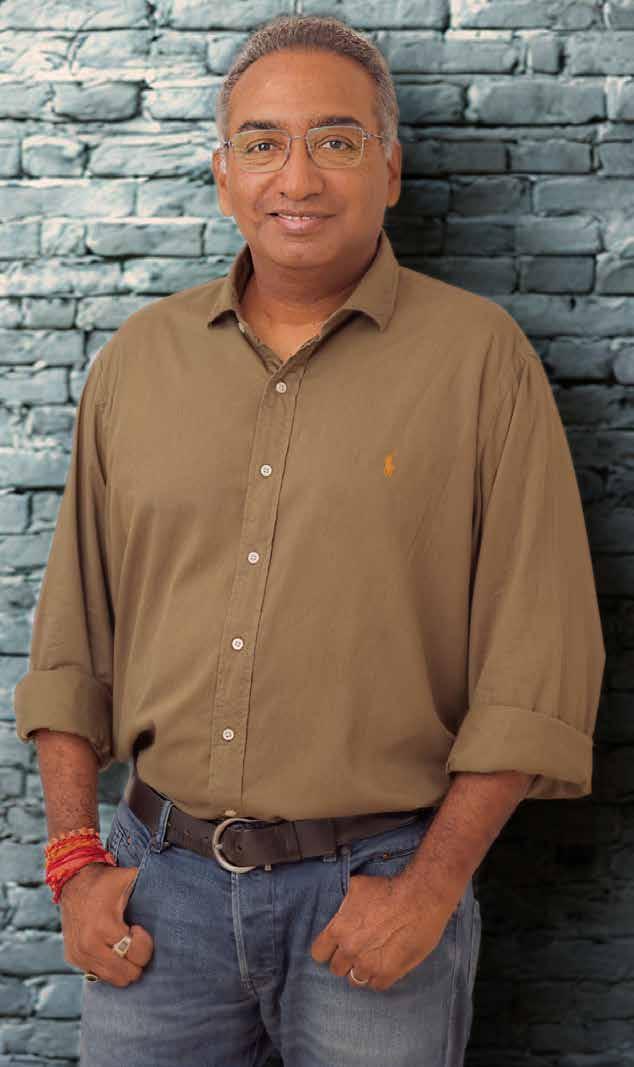


Guha, whose biographical works on Gandhi are definitive and celebrated. At first, he declined, but the pandemic changed perspectives. By late 2020, he was more receptive to the idea, and by mid-2021, we secured the rights to his books.
It came together organically. Pratik Gandhi joined early, having already performed on stage “Mohan No Masalo,” a powerful monologue about Gandhi. Hansal Mehta, with whom we had collaborated on the Scam franchise before, immediately expressed his interest when we announced the project. It was Hansal’s suggestion to take the series to TIFF and it’s paid off—it is a tremendous honour to showcase our series at TIFF and
The Gandhi series doesn’t just retell the myth—it seeks the man behind the Mahatma. Gandhi’s journey from uncertainty to greatness, from Mohan to Mahatma, reflects the spirit of evolution and self-discovery. His ethos of self-belief, resilience, and principled action—rooted in truth and humility— resonates through Sameer Nair’s vision for Indian storytelling. As India’s



to Sony Pictures Network India for taking the brand forward. Every time I watch KBC, I’m reminded of the first day and amazed that the team continues to do it so well.

Applause completes content/series before going to streamers. Does this make the process less stressful?
Actually, there is more stress in delivering good content with this approach. The risk is much higher because we make decisions on our own regarding casting, scale, and investment. We create and present a finished product that streamers must like. While some may think independence makes things easier, it’s actually more stressful than just getting commissioned by a streamer and following their guidelines. But if it were easy, why would we do it? The passion and conviction drive us to take on this challenge.
• Young people leaving home to study and work abroad
• Navigating identity in foreign lands
• Facing racism and adversity
• The need for self-belief, selfrespect, discipline, and resilience
• A message for global peace, and need over greed



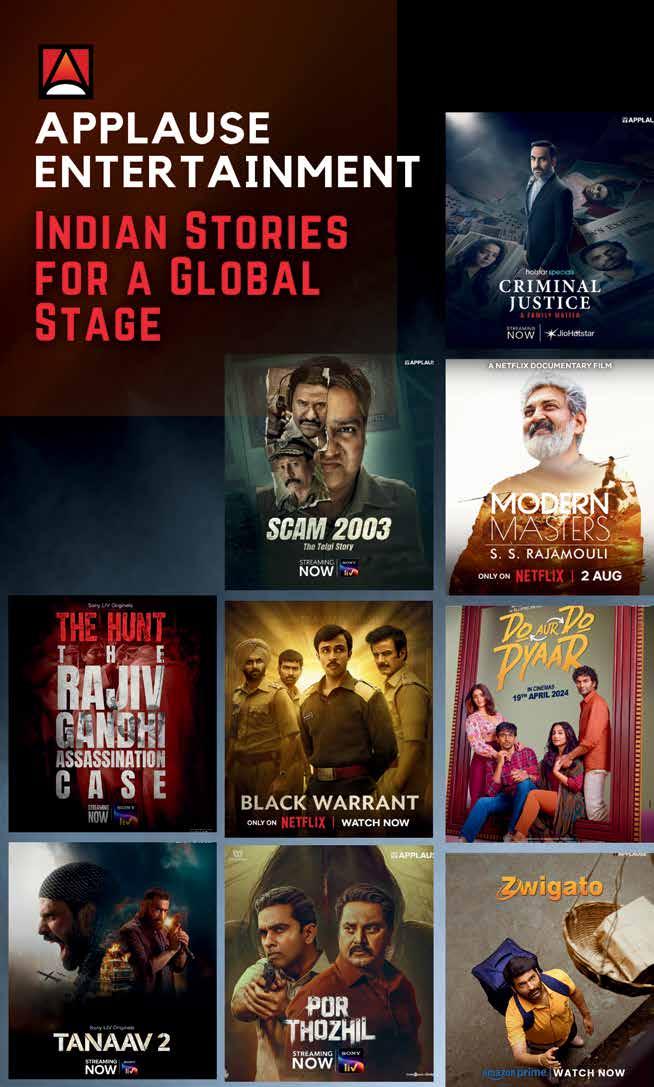




the world a global village, creators should also approach content creation globally. Hopefully, India and our company, Applause, will continue to work towards that.
How are you building institutional strength beyond individual leadership?
Building an enduring institution means creating systems that thrive beyond individual leaders. Applause is designed around empowered teams—producers, marketers, directors, creative heads—each given the space to innovate and lead.
We’re a learning organization, growing
• Embrace change and growth
• Find strength in humility
• Pursue truth and authenticity
• Let the journey shape the leader
Streaming platforms are a boon, but global

Gandhi, jointly created by Hansal Mehta and Applause Entertainment’s Sameer Nair, is the first Indian series to premiere in TIFF’s Primetime section. The show is a purely “swadeshi product,” the director tells Saibal Chatterjee
With Gandhi making history as the first Indian series to premiere in the Primetime section at TIFF, acclaimed filmmaker Hansal Mehta sits down with us to discuss the making of this ambitious, all-Indian production. In this exclusive interview, Mehta opens up about collaborating with historian Ramachandra Guha, the challenges of reimagining the Mahatma’s early years, and the pride of bringing a truly swadeshi story to the global stage.
How actively was Ramachandra Guha involved in the writing process of the series?
He has been there constantly to guide us. We sent him scripts. He loved some of the dramatization. But if he felt we’d taken any dramatic license, Mr. Guha has been quick to suggest corrections to maintain authenticity. He has been a very fine collaborator. Between him and Siddharth Basu, it worked very well for us. The series has been adapted from two of


This is such an important story to tell because it is a journey of self-discovery more than anything
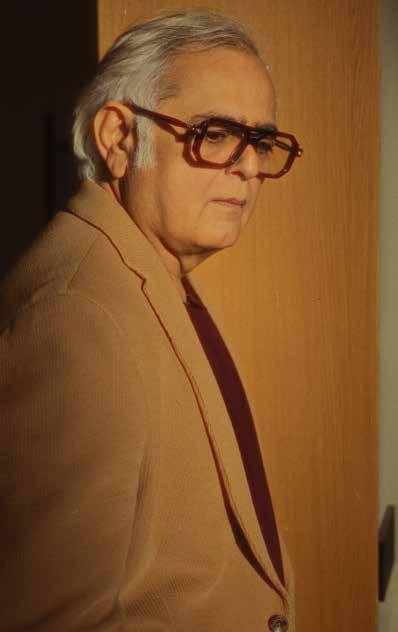
Hansal Mehta, Director

Mr. Guha’s books (Gandhi Before India and Gandhi: The Years that Changed the World). Siddharth Basu read the scripts to check for inaccuracies. He did very detailed fact-checking. We also worked with a company called Past Perfect. They are professional archivists. They assisted us with newspaper references, headlines, and specifications regarding props such as cars and other items. The three of them have contributed hugely to the detailing of the show.
Will the story of Gandhi encompass his life from birth to death, or will it solely concentrate on his early years and his contribution to the freedom struggle?
We are looking at three seasons of the series. The first season has eight episodes. Our first season covers Mohan’s formative years. It follows his experiences as a young father in India, as a man in search of himself studying law in London and then his dramatic, transformative
years in South Africa. It is a deep dive in to a fascinating internal and external journey of self-discovery. This is the story of a young man called Mohan who would much later acquire the status of a Mahatma. It is essentially a very universal story of every young man in search of identity and purpose. This is such an important story to tell because it is a journey of self-discovery more than anything. It chronicles in depth and detail Gandhi’s life and a chapter of history that is largely unknown.
Did you always have Pratik Gandhi in mind for the titular role?
Before I was signed, Pratik Gandhi was signed. When Sameer (Nair) got the rights to Ramchandra Guha’s books, Pratik was performing this solo play about Mahatma Gandhi’s early life (Mohan No Masalo, in Hindi, English,
Gandhi is, in the true sense, a swadeshi product. That makes us really proud, and we are excited to present it to the world A
and Gujarati). Applause signed Pratik first. When the announcement came, I called Sameer and asked why I am not part of this. Sameer said he did not know that I had the time. I told him I’ll drop everything and do this. Since I’ve taken this up, I have done absolutely nothing else. This project has consumed my entire life.

You have moved from stories of crime (scam and scoop) to something that is of historical significance, something sensitive because of the pressure to get everything right. In a scam or a scoop, there is scope for taking a few liberties. But there is none here. Was putting a show of this nature together a challenge in that respect?
It is painstaking. It is a lot of work. But it was a joy to see this world come alive, to see how we have managed to create a vision of the 19th century. I would say that you would never have
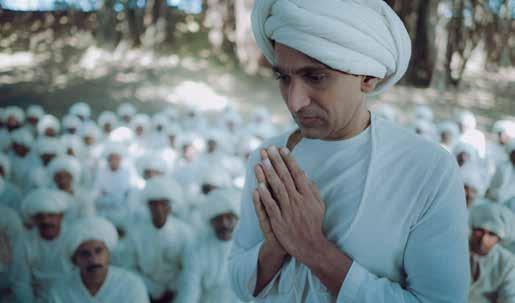
seen something this grand or cinematic coming from India, made by an all-Indian crew, from cinematography to editing to VFX. If you look at A Suitable Boy or Delhi Crime of Poacher, shows that have travelled internationally, all of them have been made by foreign crews. Gandhi is, in the true sense, a swadeshi product. That makes us really proud, and we are excited to present it to the world.
Apart from the epic cinematic vision that I try to achieve, whether it is Scam or Scoop or Shahid or Aligarh, my focus has always been on the human story. I make sure that focus never goes away. I am simply moving from one personality to another. My world has expanded into this, a canvas that is much bigger (than anything else I have attempted before). At its heart, Gandhi is a story of a human journey. You will forget that you are looking at Mahatma Gandhi as the series unfolds.
You would definitely have had Richard Attenborough’s Gandhi and Shayam Benegal’s The Making of the Mahatma in mind. But how did you ensure that they did not impinge upon your vision?
As you gather experience and evolve as a filmmaker, you learn to discern between what you admire and what you make. While both of them were special pieces of work in their own way, my Gandhi is

in no way influenced by or carries any baggage of those two productions or, for that matter, of the Darshan Jariwala-Akshaye Khanna film, Gandhi, My Father. In each of them, the lens is very narrow. In Attenborough’s film, the focus is on Gandhi as a saint. It is reverential. Benegal portrayed Gandhi in a way that humanized him, using his own understated and almost observational style. I have my own way of approaching human emotions. The world that Gandhi comes from is very, very close. In essence, it is a Gujarati family that the series deals with.
Who is your Kasturba?
It is Bhamini Oza, who happens to be Pratik Gandhi’s wife in real life.
How did you go about casting the British actors?
We had two casting directors. Mukesh Chhabra did the casting of all the Indian talent. And we
had Shakyra Dowling in the UK. She did all the foreign casting, including that for the South African roles. It was a very long process. We auditioned extensively. What we have pulled off is a very, very interesting international cast. I don’t think we have ever seen international actors like these in an Indian production. Even if you look at my writers’ room, we had Londonbased Felix von Stumm. We specifically got him to write the parts for the British actors to make sure that the language, the grammar, and the conversations would be authentic. When we write for foreign actors, the language ends up sounding artificial. I think we have done away with that in Gandhi.
This is your third time at TIFF. You have been there before with Shahid and Omerta. But Gandhi is India’s first-ever Primetime entry.
Yes, the third time is actually the most special. But Shahid was very special, too.
By Saibal Chatterjee
It was in 2005 that Cameron Bailey first travelled to India to handpick titles for the Toronto International Film Festival. What did the programmer return with? He had in his bag Shonali Bose’s Amu for Contemporary World Cinema, Ritu Sarin and Tenzing Sonam’s Dreaming Lhasa for Discovery, Ashim Ahluwalia’s John & Jane for Real to Reel, and Buddhadeb Dasgupta’s Kaalpurush for Masters. That was the year that TIFF opened with a gala screening of the third film of Deepa Mehta’s

Elements trilogy, Water. In the 20 years since then, both the festival and Indian independent cinema, which the TIFF CEO has consistently and vigorously championed, have grown, and the country’s presence in North America’s premier film festival has been steady and rewarding. The likes of Noah Cowan and Steve Gravestock, now no longer with TIFF, were instrumental in bringing Indian films to TIFF in the earlier decades of the festival, but Bailey’s aggressive pursuit of films from the subcontinent significantly



widened and altered the terms of engagement. In the first few years of the millennium, TIFF programmed films by Mani Ratnam, Adoor Gopalakrishnan, and Buddhadeb Dasgupta. Post-2005, newer names from India’s independent cinema space began to appear on the radar with regularity. In 2012, Bailey, who has been the CEO of TIFF since November 2021, received the title of
artistic director for the festival. That year TIFF showcased a package of ten Mumbai films for its ‘City to City’ segment, which assembled, among others, directors like Anurag Kashyap, Dibakar Banerjee, Hansal Mehta, and Anand Gandhi. His and his festival’s relationship with Indian cinema that began earlier in the new millennium was well and truly cemented.
The London-born,
FROM PROGRAMMING DEEPA MEHTA’S WATER TO THE LATEST INDIE SUCCESSES LIKE HOMEBOUND, TIFF’S EVOLVING RELATIONSHIP WITH INDIA HAS BRIDGED THE GAP BETWEEN MAINSTREAM ENTERTAINMENT AND BOLD, NEW STORYTELLING, OFFERING
A RICHER, MORE DIVERSE PERSPECTIVE ON INDIAN FILM

Barbadian-origin Canadian film criticturned-festival programmer was, until the coronavirus pandemic interrupted the world’s plans, an annual visitor to Mumbai, where he would preview films from across the country. Bailey chose Indian films such as Kashyap’s Mukkabaaz, Hansal Mehta’s Shahid, and Nandita Das’ Firaaq before they gained recognition
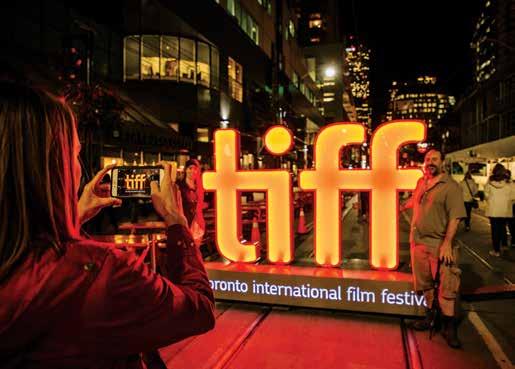

in their respective countries of production. As a programmer, he also celebrated the cinema of post-Ray generation Indian masters like Adoor Gopalakrishnan and Buddhadeb Dasgupta. Bailey did not, however, shy away from programming mainstream Bollywood movies. Star-studded Hindi films like Kabhi Alvida Na Kehna, Singh is Kinng, and Dil Bole Hadippa have figured in the TIFF line-up as a result. In recent years, the likes of Anurag Kashyap have blurred the line between social commentary and visceral entertainment, allowing the TIFF CEO the luxury of not relying on Bollywood kitsch. Nothing probably proves that more emphatically than the inclusion this year of Neeraj Ghaywan’s Homebound, produced by one of the Mumbai movie industry’s top banners, Dharma Productions.
Homebound, about two young men whose friendship is severely tested by the social fault lines of Indian society, is part of TIFF’s Gala Presentations lineup, once a preserve of conventional Bollywood potboilers targeted principally at Toronto’s Indian immigrant community. By gradually breaking down the gap between popular Bollywood films and socially relevant movies (like Kiran Rao’s Laapata Ladies in 2023 and Reema Kagti’s Superboys of Malegaon in 2024), Bailey and his programming team have made a significant change that has given Indian cinema a more global and independent identity. TIFF has for many years been the place to be for anybody who wants to sample the diversity of Indian films—from Sthal and Boong to Mard Ko Dard Nahi Hota and Thank You for Coming.




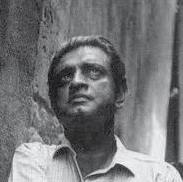

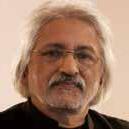




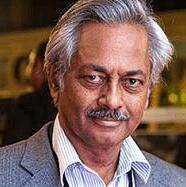
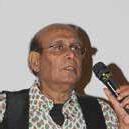





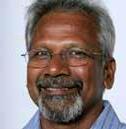


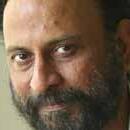







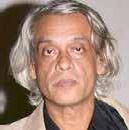

Around the time that Bill Marshall, Dusty Cohl and Henk Van der Kolk founded that the Toronto International Film Festival (TIFF), then known as a “Festival of Festivals”, dramatic changes were sweeping through the Indian movie industry. In 1975, the era of multi-starrers, inaugurated a decade ago by Waqt, took firm roots in the Hindi movie industry with Sholay achieving unprecedented commercial success and Amitabh Bachchan cementing his status as a superstar with Deewar. Down South, Kamal Haasan and Rajinikanth, who would impact the next five decades of Tamil cinema in no uncertain terms, debuted in the mid-1970s. In Bengal, Satyajit Ray made Jana Aranya (The Middleman), the last film of his Calcutta trilogy, in 1975 before directing his first Hindi-language film Shatranj Ke Khilari (The Chess Players, 1977), which was to become TIFF’s first-ever Indian entry. While TIFF has evolved in striking ways the past five decades – the festival dropped its original moniker and officially became TIFF in 1994, the year it hosted a large “India Now!” retrospective, Indian cinema, too, has made its way, for better or for worse, into its modern era. Films from the world’s largest movie industry (in terms of the number of yearly productions) continues to figure prominently in North America’s premier festival, representing a parallel growth path of great significance.
By Saibal Chatterjee

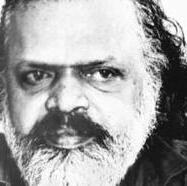




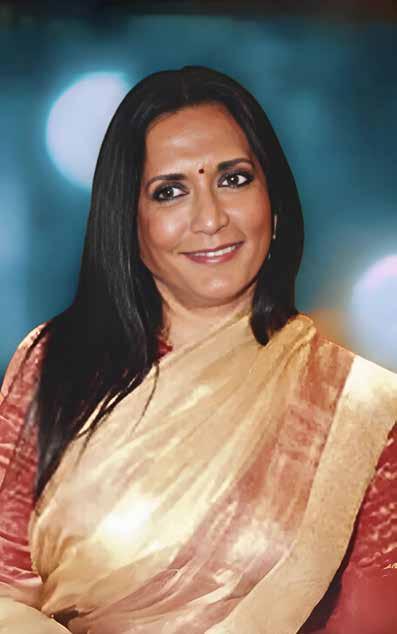



The first two editions of TIFF – in 1976 and 1977 – had no official Indian entry, but the festival’s inaugural year saw Deepa Mehta, then 26, checking in with the short documentary film, At 99: A Portrait of Louise Tandy Murch Before its TIFF screening, the film was adjudged “the best documentary under 30 minutes” at the Canadian Film Awards in 1975. It was about a music teacher who, aged a year shy of 100, lived independently in her own home. Louise Tandy Murch was the mother of painter Walter Tandy Murch and the grandmother of Academy Award-winning film editor Walter Scott Murch, who was the first-ever technician in history to receive a “sound designer” mention in the credits (for his work in Francis Ford Coppola’s epochal Apocalypse Now). Amritsar-born, Toronto-based Mehta returned to TIFF 15 years later with her first fiction feature Sam & Me, which revolved around a young Indian boy and his relationship with an elderly Jewish gentleman in a Toronto neighbourhood. Mehta has been in the TIFF program nine more times, with I Am Sirat, an Indian-Canadian documentary profile of transgender Delhi woman Sirat Taneja, being the last of her many entries. In an unmatched distinction, all three films of her acclaimed Elements trilogy – Fire, Earth and Water –have played TIFF.
At 99: A Portrait of Louis Tandy Murch (1976); Sam & Me (1991); Fire (1996); Earth (1998); The Republic of Love (2003); Water (2005); Heaven on Earth (2008); Midnight’s Children (2012); Beeba Boys (2015); Anatomy of Violence (2018); I Am Sirat (2023)
Deepa Mehta co-wrote another TIFF title, Cooking With Stella (2009), written and directed by her photojournalist-brother Dilip Mehta






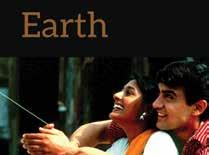


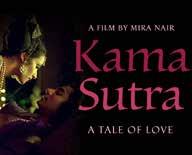

Indian-American director Mira Nair started her TIFF run, like Mehta, aged 26 with the 52-minute documentary So Far from India (1983). The film is about a young Indian newspaper dealer in the subways of New York who returns home to Ahmedabad to reunite with his wife and is confronted with a conflict between his traditional upbringing and his new life. Nair has made it to TIFF on seven more occasions since. Her last appearance was in 2020 with the British television miniseries A Suitable Boy, featuring Tabu, Ishaan Khatter, Tanya Maniktala and Shahana Goswami. A TIFF Tribute Award was also bestowed on Nair that year.
So far from India (1983); Salaam Bombay! (1988); Kama Sutra: A Tale of Love (1996); Monsoon Wedding (2001); The Namesake (2006); The Reluctant Fundamentalist (2012); Queen of Katwe (2016); A Suitable Boy (2020)
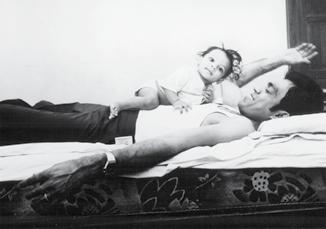


TIFF FRAMED MIRA NAIR AS A TRANSFORMATIVE STORYTELLER, HONORED WITH THE JEFF SKOLL AWARD FOR IMPACT MEDIA, CELEBRATING HER FILMS’ CULTURAL RESONANCE AND SOCIAL CHANGE
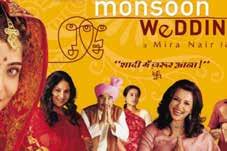
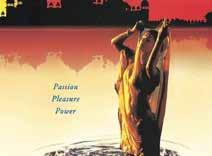

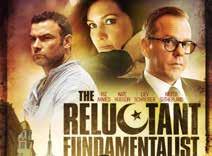


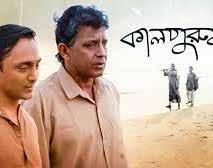

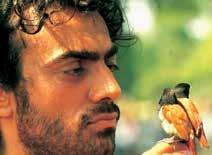
The Kolkata-based Bengali auteur known for an uncompromising cinematic vision, harmonised poetry, moving image and socio-political commentary in his inimitable works. He figured in TIFF’s now-defunct Masters segment more often than any other Indian director.
Charachar (The Shelter of Wings, 1994); Uttara (The Wrestlers, 2000); Mondo Meyer Upakhyan (A Tale of a Naughty Girl, 2002); Swapner Din (Chased by Dreams, 2004); Kaalpurush (Memories in the Mist, 2005); Ami, Yasin Ar Amar Madhubala (The Voyeurs, 2007); Janala (Window, 2009); Tope (The Bait, 2016)


BUDDHADEB DASGUPTA INFLUENCED TIFF WITH POETIC, SOCIALLY CONSCIOUS BENGALI FILMS, BLENDING VISUAL ARTISTRY AND STORYTELLING, ENRICHING INDIAN CINEMA’S GLOBAL PRESENCE AND RETROSPECTIVES

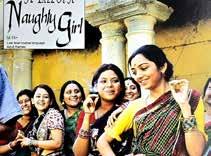
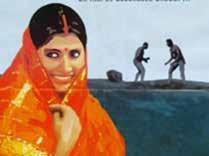
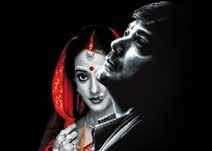
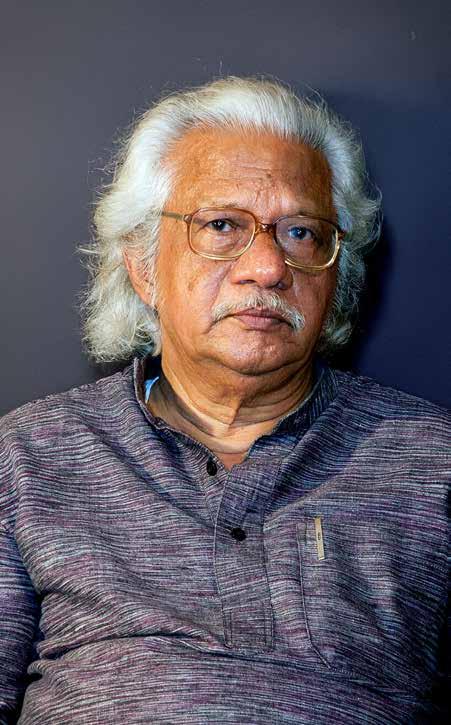


One of the leading lights of the postRay generation of Indian filmmakers, the Malayali maestro made half a dozen trips to TIFF with works that represent the high points of contemporary cinema from Kerala. The public shows of his films in Toronto have always played to full houses.
Mathilukal (The Walls, 1990); Vidheyan (The Servile, 1994); Kalamandalam Gopi (2000); Nizhalkkuthu (Shadow Kill, 2002); Naalu Pennungal (Four Women, 2007); Pinneyum (Once Again, 2016)
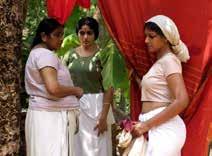


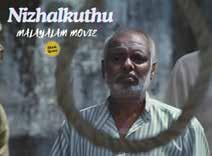
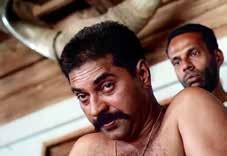

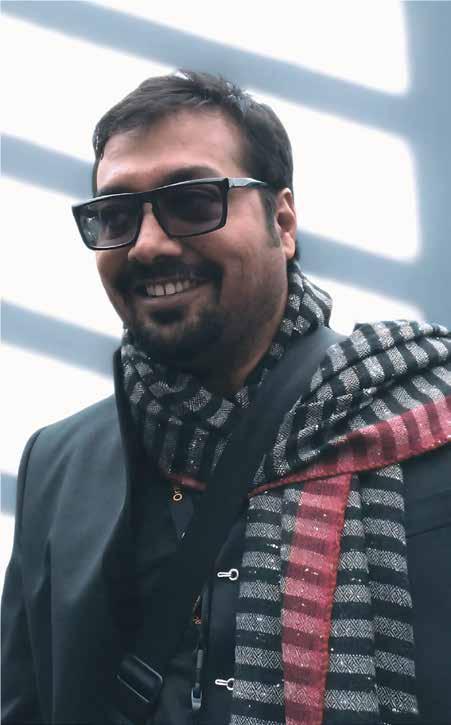

Anurag Kashyap’s latest TIFF entry, Bandar (Monkey in a Cage, 2025), starring Bobby Deol and Sanya Malhotra, is his sixth. Among his films that have been selected by TIFF are the two parts of Gangs of Wasseypur. Kashyap was associated as producer/presenter of two other TIFF selections from India – Michael (2011), directed by Ribhu Dasgupta with Naseeruddin Shah in the titular roles, and sound designer-turnedfilmmaker Nithin Lukose’s Malayalamlanguage PAKA – River of Blood (2021).
That Girl in Yellow Boots (2010); Gangs of Wasseypur Part 1 (2012); Gangs of Wasseypur Part 2 (2012); Mukkabaaz (2017); Manmarziyan (2018); Bandar (Monkey in a Cage, 2025)
ANURAG KASHYAP’S FILMS AT TIFF ARE KNOWN FOR BOLD STORYTELLING, GRITTY REALISM, AND DYNAMIC NARRATIVES, SIGNIFICANTLY ELEVATING INDIAN INDEPENDENT CINEMA’S GLOBAL PRESENCE

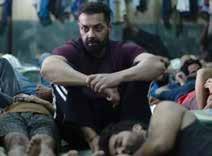
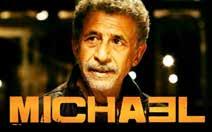



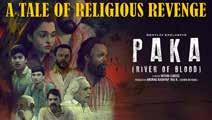
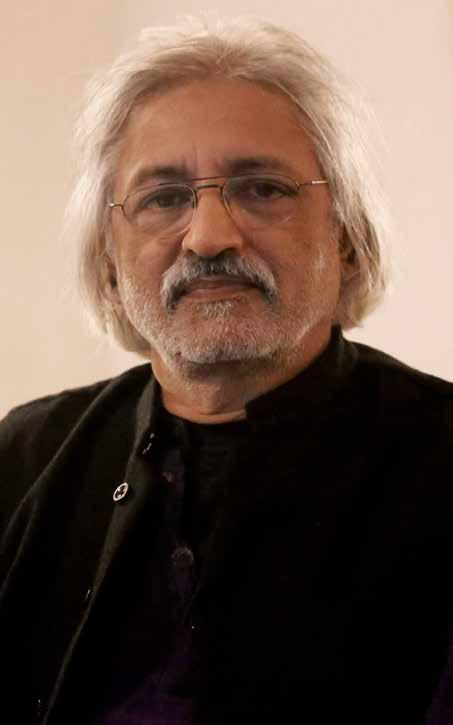

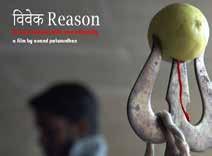
The celebrated documentary filmmaker’s TIFF outings, every one of them with a watershed film, straddle almost the entire span of the festival’s 50 years. Five films by Anand Patwardhan, doyen of the Indian independent documentary movement, have played at TIFF, from the 40-minute film A Time to Rise in 1981 to the 96-minute The World is Family in 2023. A Time to Rise, which was screened at the sixth edition of TIFF, documented the conditions of Chinese and Indian immigrant workers in British Columbia that led to the formation of the Canadian Farmworkers Union. Patwardhan has had at least one film in the TIFF programme in almost every decade since then. He travelled to TIFF in 2018 with Vivek (Reason), a 218-minute documentary that scrutinises the dismantling of democracy in one of the world’s most populous nations.
A Time to Rise (1981); Raam Ke Naam (1992); Father, Son and Holy War (1994); Vivek (Reason, 2018); The World is Family (2023)
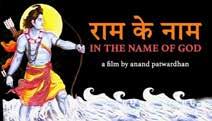

ANAND PATWARDHAN’S DOCUMENTARIES AT TIFF EXPOSE SOCIAL INJUSTICE, COMMUNALISM, GENDER ISSUES, AMPLIFYING MARGINALIZED VOICES, INSPIRING ACTIVISM AND GLOBAL AWARENESS
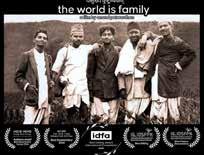
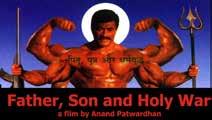


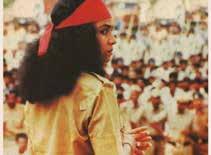


Mani Ratnam (4 films): A master craftsman and storyteller who put Tamil films on the world map
Thiruda Thiruda (1994); Bombay (1995); Iruvar (1997); Kannathil Muthamittal (2002)
Shekhar Kapur (4 films): The globally feted Indian filmmaker began his TIFF journey in the mid-1990s with the hardhitting Bandit Queen and followed it up with three international productions.
Bandit Queen (1994, as part of a section named ‘India Now’); Elizabeth (1998); The Four Feathers (2002); What’s Love Got to Do With It? (2022)
Santosh Sivan (4 films): The celebrated Indian cinematographer, too, has had a quartet of appearances at TIFF.
The Terrorist (Tamil, 1998); Malli (Tamil, 1999); Asoka (Hindi, 2001); Before the Rains (English/Malayalam, 2007)
Dev Benegal (3 films): Among a crop of Indian filmmakers who burst on the scene in the mid-1990s, Dev Benegal found ready takers in TIFF
English, August (1994); Split Wide Open (1999); Road, Movie (2009)
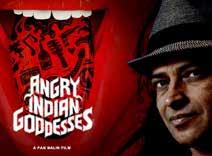
Pan Nalin (3 films): The Indian director who has lived and worked in different parts of the world is a three-time TIFF participant
Samsara (2001); Faith Connections (2013); Angry Indian Goddesses (2015)
Hansal Mehta (3 films): First City to City, then Special Presentations and now Primetime, the veteran Mumbai filmmaker, no stranger to TIFF, has been on the move
Shahid (2012); Omerta (2017); Gandhi (2025) (co-created with Sameer Nair) –the first Indian series in Primetime, section launched ten years ago
Richie Mehta (3 films): The Mississaugaborn Canadian director of Indian descent cut his teeth at his home festival with three films shot in India
Amal (2007 – Canada First!); Siddharth (2013); India in a Day (2016, Next Waves –Documentaries)
Vasan Bala (2 films): His debut film reached TIFF via Cannes Critics Week before Vasan Bala became the first-ever Indian director to break into Midnight Madness
Peddlers (2012); Mard Ko Dard Nahi Hota (The Man Who Feels No Pain, 2018)


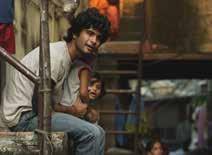


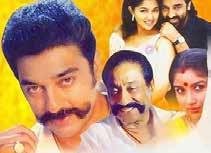

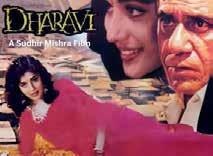

TIFF 1994 and TIFF
2012 showcased India and Mumbai respectively with large selection of films. In 1994, at the festival’s 19th edition, programmers Noah Cowan and David Overby curated a 22-film package under the rubric “India Now!”. It consisted of 14 narrative features and eight documentaries ranging from Anand Patwardhan’s two-hourlong Father, Son and Holy War to the six-minute Tragedy of an Indian Farmer, made by Murali Nair.
The films that constituted the “India Now!” selection in 1994 were: Shekhar Kapur’s Bandit Queen (opening night), Goutam Ghose’s Patang, Bharathan’s Thevar Magan (Tamil, written and produced by and starring Kamal Haasan), Dev Benegal’s English, August, Nabyendu Chatterjee’s Shilpi (The Dreamer, Bengali), Adoor Gopalakrishnan’s Vidheyan (The Servile, Malayalam), K.P. Sasi’s Ilayum Mullum (Leaves and Thorns, Malayalam), Dilip Ghosh’s Aadhi Haqeeqat Aadha Fasana (Children of the Silver Screen), Jill Misqitta’s The Clap Trap (about Hindi cinema junior artistes), Father, Son and Holy War, Buddhadeb Dasgupta’s Charachar, Tragedy of an Indian Farmer, Reena Mohan’s Kamlabai, Bikramjit “Blondie” Singh’s Bollywood (based on Shashi Tharoor’s ‘Show Business’), Riyad Vinci Wadia’s Fearless: The Hunterwali Story, Ruchir Joshi’s Tales from Planet Kolkata, Pankaj Butalia’s When Hamlet Went to Mizoram, Raja Mitra’s Ekti Jiban (Portrait of a Life, starring Satyajit Ray collaborators Soumitra Chatterjee and Madhabi Chakrabarty), Sudhir Mishra’s Dharavi, M.T. Vasudevan Nair’s Kadavu (The Ferry, Malayalam), G. Aravindan’s Marattam (Masquerade, Malayalam) and Abbas-Mustan’s Baazigar (starring Shah Rukh Khan and Kajol).
These films apart, the TIFF 1994 lineup had Mani Ratnam’s Thiruda Thiruda, Ismail Merchant’s directorial debut In Custody and Indian-born Canadian documentarian Ali Kazimi’s Narmada: A Valley Rises.
In 2012, the year in which the current CEO of TIFF, Cameron Bailey, was appointed the festival’s artistic director, Mumbai was under the spotlight in the short-lived City to City programme. The segment was made up of ten narrative features:
The City to City: Mumbai films were: Habib Faisal’s Ishaqzaade, Mohit Takalkar’s The Bright Day, Anurag Kashyap’s Gangs of Wasseypur Part 1 & Part 2 (picked from Cannes Directors Fortnight), Ashim Ahluwalia’s Miss Lovely (from Cannes Un certain regard section), Manjeet Singh’s Mumbai Cha Raja, Vasan Bala’s Peddlers (from Cannes Critics Week), Hansal Mehta’s Shahid, Dibakar Banerjee’s Shanghai and Anand Gandhi’s Ship of Theseus

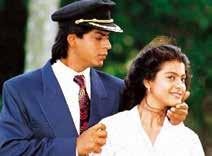

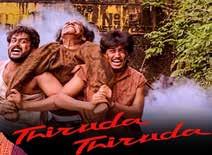
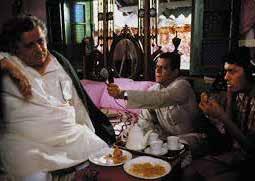
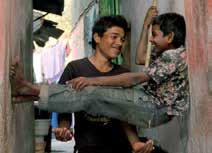

Stalwarts and pathbreakers whose unique cinematic sensibilities resonated at TIFF and represented the diversity and depth of non-mainstream Indian cinema
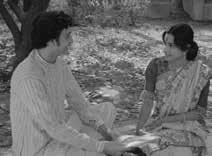


Satyajit Ray (4 films): Shatranj Ke Khilari (1978), the first-ever Indian film at TIFF; Kanchenjunga (1987), screened as part of section called “Buried Treasures”; Charulata (1998), part of Dialogues: Talking with Pictures; Aranyer Din Ratri (TIFF Classics 2025)
Mrinal Sen (3 films): Akaler Sandhane (1981); Cannes Jury Prize winner Kharij (1983); Khandhar (1984)
Murali Nair (3 films): Tragedy of an Indian Farmer (short film); Cannes Camera d’Or winner Marana Simhasanam (Throne of Death, Malayalam, 1999); Pattiyude Divasam (A Dog’s Day, Malayalam, 2001)
Aribam Syam Sharma (2 films): Imagi Ningthem (My Son, My Precious, Manipuri, 1983); Ishanou (The Chosen One, Manipuri, 1991)
Ketan Mehta (2 films): Mirch Masala (1987); Maya Memsaab (1993)
Rituparno Ghosh (2 films): Chokher Bali (Bengali, 2003); The Last Lear (English, 2007)
Sudhir Mishra: Dharavi (1994)
G. Aravindan: Marattam (Masquerade, Malayalam, 1994)
K.P. Sasi: Ilayum Mullum (Leaves and Thorns, Malayalam, 1994)
M.T. Vasudevan Nair: Kadavu (The Ferry, Malayalam, 1994)
Nabyendu Chatterjee: Shilpi (The Dreamer, Bengali, 1994)
Raja Mitra: Ekti Jiban (Portrait of a Life, Bengali, 1994)
Jahnu Barua: Hkhagoroloi Bohu Door (It’s a Long Way to the Sea, Assamese, 1995)
Amol Palekar: Daayra (The Square Circle, 1996)
Kumar Shahani: Bhavantarana (1994), documentary on Odissi dance maestro Kelucharan Mohapatra
Girish Kasaravalli: Kurmavatara (The Tortoise, An Incarnation, Kannada, 2012)
Ritwik Ghatak: Meghe Dhaka Tara (The Cloud-Capped Star, Bengali, 2012) – TIFF Cinematheque
Anup Singh: Qissa – The Tale of a Lonely Ghost (Punjabi, 2013)
Ritesh Batra: The Lunchbox (2013)
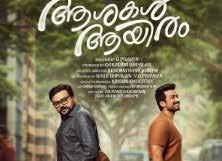
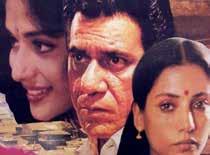

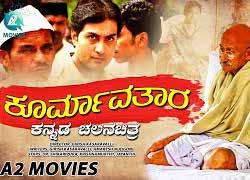
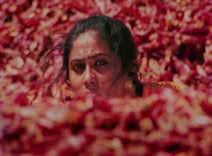
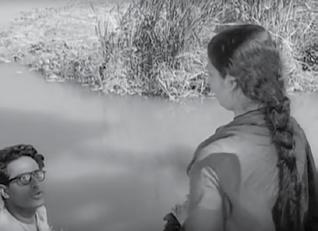

Barring the dominant Deepa Mehta and Mira Nair, and the exceptions of Reena Mohan (Kamlabai) and Jill Misquitta (The Clap Trap) in 1994, which was a year of plenty for India at TIFF, it wasn’t until the mid-noughties that the festival turned its attention to women filmmakers from the subcontinent. In the 20 years since then, it has been a steady stream. Significantly, all the seven Indian short films that have played TIFF thus far have been made by women. Only two animation features from India have travelled to Toronto and both have been directed by women. These women directors hit the high notes at TIFF and helped emphatically altered the gender balance:


Reena Mohan: Kamlabai (1994), documentary about Kamlabai Gokhale, pioneering actress of Marathi stage and films
Jill Misquitta: The Clap Trap (1994)
Shonali Bose: Amu (2005); Margarita, With a Straw (2014); The Sky is Pink (2019)
Ritu Sarin (with Tenzing Sonam): Dreaming Lhasa (2005); The Sweet Requiem (2018)
Chitra Palekar: Maati Maay (A Grave Keeper’s Tale, 2006), a Marathi film based on Bengali writer Mahasweta Devi’s story
Nandita Das: Firaaq (2008); Manto (2018); Zwigato (2022) - every narrative feature made by actor-turned-director Nandita Das has found favour with TIFF selectors)
Kiran Rao: Dhobi Ghat (2010); Laapata Ladies (2023)
Gauri Shinde: English Vinglish (2012)
Shilpa Ranade: Goopy Gawaiya Bagha Bajaiya (2013 TIFF Kids, animation), one of only two Indian animation ever featured at TIFF
Meghna Gulzar: Talvar (2015)
Leena Yadav: Parched (2015)
Konkona Sen Sharma: A Death in the Gunj (2016)
Bornila Chatterjee: The Hungry (2017)
Rima Das: Village Rockstars (Assamese, 2017); Bulbul Can Sing (Assamese, 2018); Tora’s Husband (Assamese, 2022), the first Indian film selected for TIFF’s competitive Platform section
Pakhi Tyrewala: Pahuna: The Little Visitors (2017), produced by Priyankja Chopra
Geetu Mohandas: Moothon (Elder Brother, Malayalam, 2019)
Gitanjali Rao: Bombay Rose (Animation, 2019)
Payal Kapadia: A Night of Knowing Nothing (2021); All We Imagine as Light (2024) – both films arrived in Toronto with awards won in Cannes
Lakshmipriya Devi: Boong (Manipuri, 2024)
Reema Kagti: Superboys of Malegaon (2024)
Khusboo Ranka (with Vinay Shukla): An Insignificant Man (2016)
Shirley Abraham (with Amit Madhesiya): Cinema Travellers (2016)
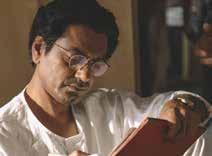






Big-banner productions that swept into downtown Toronto with their complement of movers
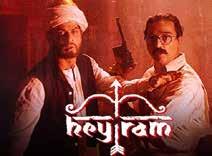
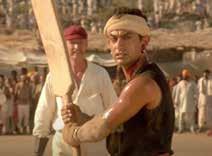
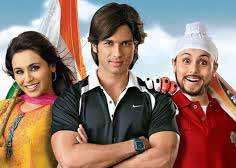
Baazigar (1994) – Director: Abbas-Mustan; Cast: Shah Rukh Khan, Kajol, Shilpa Shetty
Hey Ram (2000) – Director: Kamal Haasan; Cast: Kamal Haasan, Shah Rukh Khan, Hema Malini, Rani Mukherji
Asoka (2001) – Director: Santosh Sivan; Cast: Shah Rukh Khan, Kareena Kapoor, Ajith Kumar; Producers: Juhi Chawla, Shah Rukh Khan
Lagaan (2001) – Director: Ashutosh Gowariker; Cast: Aamir Khan; Producer: Aamir Khan
Kabhi Alvida Na Kehna (2006) – Director: Karan Johar; Cast: Amitabh Bachchan, Shah Rukh Khan, Rani Mukherji, Abhishek Bachchan, Preity Zinta; Banner: Dharma Productions
The Last Lear (2007) – Director: Rituparno Ghosh; Cast: Amitabh Bachchan, Preity Zinta, Arjun Rampal
Singh is Kinng (2008) – Director: Anees Bazmee; Cast: Akshay Kumar, Katrina Kaif
Dil Bole Hadippa (2009) – Director: Anurag Singh; Cast: Rani Mukherji, Shahid Kapoor; Banner: YRF
What’s Your Rashee? (2009) – Director: Ashutosh Gowariker; Cast: Priyanka Chopra, Harman Baweja; Producer: Ronnie Screwvala
Mausam (2011) – Director: Pankaj Kapur; Cast: Shahid Kapoor, Sonam Kapoor
English Vinglish (2012) – Director: Gauri Shinde; Cast: Sridevi, Adil Hussain
Shuddh Desi Romance (2013) – Director: Maneesh Sharma; Cast: Sushant Singh Rajput, Parineeti Chopra, Vaani Kapoor; Banner: YRF
Mary Kom (2014) – Director: Omung Kumar; Cast: Priyanka Chopra; Producers: Viacom18, Sanjay Leela Bhansali
The Sky is Pink (2019) – Director: Shonali Bose; Cast: Priyanka Chopra, Farhan Akhtar
Thank You for Coming (2023) – Director: Karan Boolani; Cast: Bhumi Pednekar, Shehnaaz Gill
Homebound (2025) – Director: Neeraj Ghaywan; Cast: Ishaan Khatter; Janhvi Kapoor; Banner: Dharma Productions





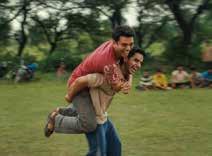




Ganga (TIFF 1985; French title: Eau) –Velu Viswanadhan – 150-minute documentary, second film in the Paris-based painter-sculptor’s pentalogy on the elements of Indian cosmology – sand, water, fire, air and ether
Forest of Bliss (TIFF 1986) – Robert Gardner – 89-minute documentary by the American ethnographic filmmaker about a day in Varanasi. The film unfolds from one dawn to the next.
The Mahabharata (TIFF 1989) – Peter Brook. Written by Jean-Claude Carriere, who worked for eight years to develop the epic for the screen
Bollywood (TIFF 1994) – Bikramjit “Blondie” Singh. A no-holds-barred parody of Bollywood potboilers and the creative ecosystem that produced them. Based on Shashi Tharoor’s novel Show Business, the film stars Chunky Pandey as Ashok Banjara as a “serious” film actor who develops the ambition to achieve commercial success and become a movie star.
Brick Lane (TIFF 2007) – Sarah Gavron. A film based on Bangladeshi-British writer Monica Ali’s book of the same name. Cast led by Tannishtha Chatterjee and Satish Kaushik.
Cooking With Stella (TIFF 2009) – directed by photojournalist Dilip Mehta. Canadian drama filmed in Delhi. Co-written by the director’s sister Deepa Mehta. About a Canadian diplomat (Lisa Ray), her husband (Don McKellar) and their cook Stella (Seema Biswas).
Chatrak (Mushrooms, 2011) – directed by Vimukthi Jayasundara. A Bengali film made by a Sri Lankan filmmaker, an alumnus of FTII Pune, with a cast of actors from Kolkata. It premiered in Cannes Directors Fortnight before heading to TIFF.
Monsoon (TIFF 2014) – Sturla Gunnarson (part of Canada’s Top Ten – Features programme). A sprawling two-hour documentary that tracks the course of the Indian monsoon.
Tigers (TIFF 2014) – Danis Tanovic. The film by the Oscar-winning Bosnian director stars Emraan Hashmi as a Pakistani medical salesman who rebels against the system when he discovers the harmful effects of the baby formula he sells on behalf of a multinational company. The cast of Tigers has several other Indian actors, including Adil Hussain and Geetanjali Thapa.
The Fall (TIFF 2006) – Tarsem Singh Dhandwar. The Jalandhar-born director shot the film in 20-odd countries. It celebrates the power of storytelling through a legend of five heroes fighting an evil governor that a hospitalised silent-era stuntman narrates to a Romanian immigrant girl recuperating in the same medical facility. Seventeen years later, Dhandwar’s film, Dear Jassi, an India-Canada-US co-production, won TIFF’s coveted Platform Prize.




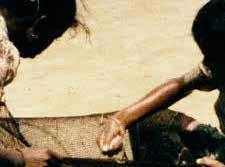



In 2008, Danny Boyle’s Slumdog Millionaire, a loose adaptation of diplomatturned-writer Vikas Swarup’s Q & A, screened at TIFF after its Telluride world premiere. It was an instant hit, with the audience at the press and industry screening of the film transfixed by the energy and momentum of the film. Not a soul left the hall as the closing song, the Oscar-winning A.R Rahman-composed Jai ho, played on the screen, a sure sign that there was something in the film that had captured the imagination of the viewer. The film, shot in the slums of Mumbai and revolving around an 18-year-old impoverished but spirited lad played by Dev Patel in his screen debut, won the TIFF People’s Choice Award, which set it on course for major Oscar triumph.
It won eight Academy Awards, including for Best Picture, Best Director and Best Adapted Screenplay (for Simon Beaufoy). Slumdog Millionaire, lensed by Anthony Dod Mantle, was the first digitally shot film in history to win the Best Cinematography Oscar. Besides Dev Patel, the cast included Freida Pinto, Anil Kapoor and Irrfan Khan In the wake of its global success, the film divided audiences, critics and academics, with many critiquing it for peddling “poverty porn” and promoting a problematic “endjustifies-the-means” philosophy.
But that made no dent in the film’s popularity. The chord that it struck with audiences probably had something to do with the incredible story that it told – that of an underdog negotiating severe hardships and yet not keeling over in a time in which the real world was struggling with a severe financial meltdown triggered by unbridled corporate greed and the US subprime mortgage crisis.

Breakout Indian talent that TIFF sought out over the years and showcased in its Discovery section – and elsewhere
Kaizad Gustad – Bombay Boys (1998)
Cheran – Porkkalam (Golden Age, Tamil, 1998)
Pankaj Butalia – Karvaan (1999) –Butalia’s documentaries Moksha (1993) and When Hamlet Went to Mizoram (1994) played TIFF before he made his first, and to date only, narrative feature
Rahul Bose – Everybody Says I’m Fine (English, 2001)
Vishal Bhardwaj – Maqbool (2003)
Manish Jha – Mathrubhoomi (2003)
Bharat Bala – Hari Om (Hindi/French/ English, 2004)
Rajnesh Domalpalli – Vanaja (Telugu, 2006)
Shivaji Chandrabhushan – Frozen (2007)
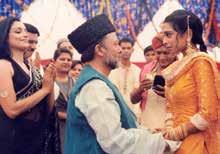
Laxmikant Shetgaonkar – Paltadacho Munis (Konkani, 2009)
Aamir Bashir - Harud (Autumn, 2010)
Sidharth Srinivasan – Pairon Talle (2010)
Rima Das – Village Rockstars (2017)
Ritwik Pareek – Dug Dug (2021)
Nithin Lukose – Paka: River of Blood (Malayalam, 2021)
Jayant Digambar Somalkar – Sthal (A Match, Marathi, 2023)
Lakshmipriya Devi – Boong (Manipuri, 2024)
Bikas Ranjan Mishra – Bayaan (2025)
Jitank Singh Gurjar – Vimukt (In Search of the Sky, Braj, 2025), the director’s second feature; Part of the festival’s Centrepiece (previously Contemporary World Cinema)


Many significant Indian documentaries brought tales of real people, places and phenomena to Toronto.



Ali Kazimi: Narmada: A Valley Rises (Perspectives Canada, 1994); Shooting Indians: A Journey with Jeffery Thomas (1997)
Reena Mohan: Kamlabai (1994)
Kumar Shahani: Bhavantarana (1994)
Ruchir Joshi: Tales from Planet Kolkata (1994)
Riyad Vinci Wadia: Fearless: The Hunterwali Story (1994)
Adoor Gopalakrishnan: Kalamandalam Gopi (2000)
Mira Nair: So far from India (1983)
Ashim Ahluwalia: John & Jane (2005) (Miss Lovely (2012), Ahluwalia’s fiction feature debut, was part of TIFF’s City to City: Mumbai programme)
Pan Nalin: Faith Connections (2013)
Khusboo Ranka and Vinay Shukla: An Insignificant Man (2016)
Shirley Abraham and Amit Madhesiya: Cinema Travellers (2016)
Dilip Mehta: Mostly Sunny (2016)
Ismail Merchant – In Custody (Hindi/ Urdu, 1994)
Priyadarshan – Kanchivaram (Tamil, 2008)
Suseenthiran – Azhagarsamiyin Kudhirai (Tamil, 2011)
Dibakar Banerjee – Shanghai (2012)
Anand Gandhi – Ship of Theseus (2012)
Mohit Takalkar – The Bright Day (2012)
Manjeet Singh – Mumbai Cha Raja (2012)
M. Manikandan – Kakaa Muttai (Tamil, 2014)
Lijo Jose Pellissery – Jallikattu (2019)
Chaitanya Tamhane – The Disciple (2020)
Jallikattu In Custody

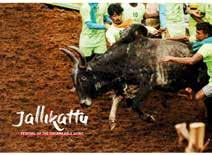
Shambhavi Kaul – 21 Chitrakoot (nine-minute short, TIFF Wavelengths 2012); Mount Song (nine-minute short, TIFF Wavelengths 2013); Night Noon (12-minute experimental short, TIFF Wavelengths 2014)
Shumona Goel and Shai Heredia – I Am Micro (15-minute documentary, 2012 TIFF Wavelengths)
Megha Ramaswamy – Newborns (nine-minute documentary short, TIFF Short Cuts 2014); Bunny (15-minute short, 2015)
Subarna Dash and Vidushi Gupta – This is TMI (7-minute animated documentary, TIFF Short Cuts 2023)
(Interestingly, all the Indian filmmakers whose short films have been to TIFF thus far are women)



Indian tales that struck a chord with TIFF audiences and, in one recent breakthrough, with a Platform jury consisting of filmmakers Barry Jenkins, Nadine Labaki and Anthony Shim

Maya, Hindi film directed by Digvijay Singh – First Runner-up, People’s Choice Award, TIFF 2001

Monsoon Wedding (Hindi/English), directed by Mira Nair – Second Runner-up, People’s Choice Award, TIFF 2001
(Monsoon Wedding, winner of the 2001 Venice Golden Lion, was pushed to the third place in the People’s Choice honours list by a surprise favourite of the TIFF public. Jean-Pierre Jeunet’s Amelie won the TIFF People’s Choice Award)
Paltadacho Munis (The Man Beyond the Bridge), Konkani film directed by Laxmikant Shetgaonkar – Discovery FIPRESCI PRIZE, TIFF 2009
Angry Indian Goddesses, directed by Pan Nalin – People’s Choice Award – First Runner-up, TIFF 2015
Mard Ko Dard Nahi Hota (The Man Who Feels No Pain), directed by Vasan Bala -Midnight Madness People’s Choice Award, TIFF 2018
To Kill a Tiger, directed by Indian-born Canadian filmmaker Nisha Pahuja – Award for Best Canadian Feature, TIFF 2022
Dear Jassi, directed by Tarsem Singh –Platform Prize, TIFF 2023
Sthal (A Match), Marathi film directed by Jayant Digambar Somalkar – Discovery Netpac Award, TIFF 2023
Kill, directed by Nikhil Nagesh Bhat –Midnight Madness People’s Choice Award – First Runner-up, TIFF 2023

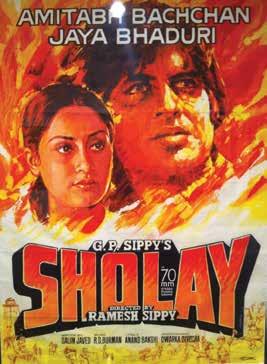
The latest edition of TIFF hosts a Gala screening of a 4K restored version of Ramesh Sippy’s Sholay at the Roy Thomson Hall to mark the 50th anniversary of the iconic Hindi film. The restoration of Sholay has been done by the Film Heritage Foundation in association with Sippy Films.

